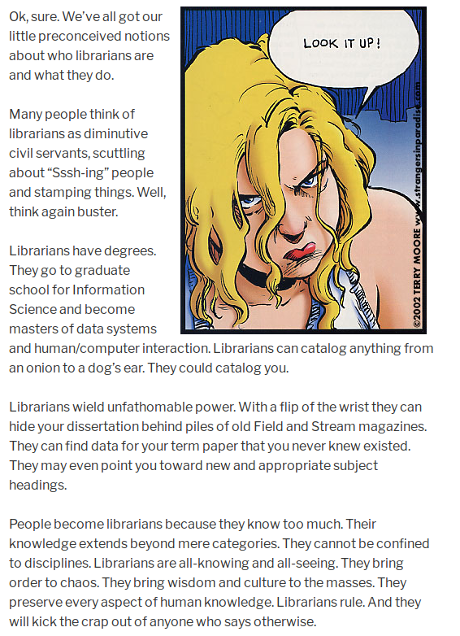Going Old School to Solve A Google Search Problem
I was completely gulled by the headline. I thought the “old school” solution was going to be:
Go ask a librarian.
My bad. Turns out the answer was:
Recently I got an email from my friend John Simpson. He was having a search problem and thought I might be able to help him out. I was, and wanted to share with you what I did, because a) you might be able to use it too and b) it’s not often in my Internet experience that you end up solving a problem using a method that was popular over ten years ago.
Here’s John’s problem: he does regular Google searches of a particular kind, but finds that with most of these searches he gets an overwhelming number of results from just a couple of sites. He wants to consistently exclude those sites from his search results, but he doesn’t want to have to type in the exclusions every time.
The rock-simple solution to this problem would be: do the Google search excluding all the sites you don’t want to see, bookmark the result, and then revisit that bookmark whenever you’re ready to search. But a more elegant solution would be to use an bookmark enhanced with JavaScript: a bookmarklet.
…
The rest of the post walks you through the creation of a simple bookmarketlet. Easier than the name promises.
When (not if) Google fails you, remember you can either visit (or call in many cases) the reference desk at your local library.
Under the title: Why You Should Fall To Your Knees And Worship A Librarian, I encountered this item:
I’ve always had a weakness for the line:
People become librarians because they know too much.
Google can quickly point you down any number of blind alleys. Librarians quickly provide you with productive avenues to pursue. Your call.
